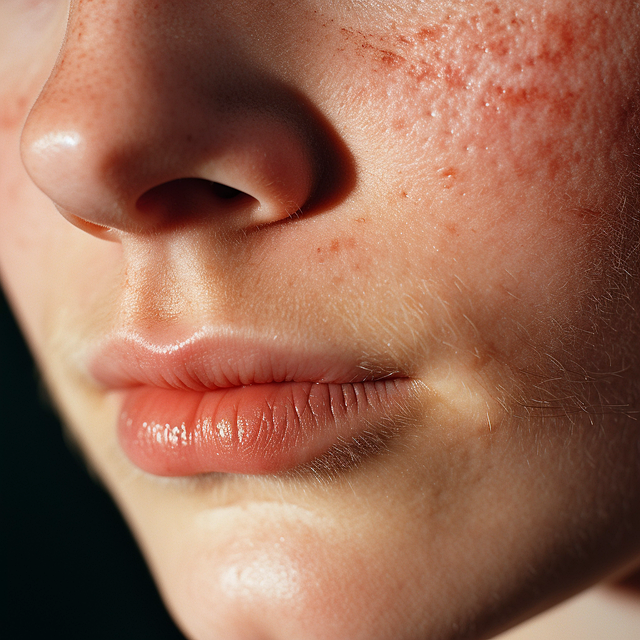We’ve all heard the term “hormonal imbalance” tossed around—often in vague, confusing contexts. It’s mentioned in casual conversations about mood swings, acne, fatigue, and fertility, yet rarely do these discussions dive deep enough to separate myth from medical reality. The truth? Hormonal imbalance is more than a buzzword—it’s a widespread health concern that affects a majority of women, many of whom are unaware of its presence or root cause.
According to health reports, over 80% of women experience some form of hormonal imbalance in their lifetime, whether it’s related to thyroid dysfunction, Polycystic Ovarian Syndrome (PCOS), or elevated prolactin levels. What’s more alarming? Nearly 70% of them remain undiagnosed or uninformed, struggling silently with symptoms they can’t explain.
To shed light on this increasingly common condition, Beauty Book consulted leading Obstetrician and Gynaecologist, Dr. Theertha Shetty, to unpack what hormonal imbalance truly means, how to recognize it, and what steps can be taken toward healing and hormonal harmony.
What Is a Hormonal Imbalance, Really?
Hormones are the body’s chemical messengers—tiny but mighty molecules secreted by various endocrine glands that regulate nearly every bodily function. From your mood and metabolism to your reproductive cycle and skin health, hormones are the conductors of your body’s internal orchestra.
Dr. Shetty explains, “There are about 50 essential hormones in your body, each responsible for critical biological processes. When their levels fluctuate—either too high or too low—it disrupts the internal equilibrium, known as homeostasis. That’s what we call a hormonal imbalance.”
The Usual Suspects: Common Types of Hormonal Imbalance
Hormonal issues can vary widely in their form and severity, but several common conditions consistently surface in women’s health:
- Hypothyroidism/Hyperthyroidism: Imbalances in thyroid hormone production, which affect energy, mood, weight, and temperature regulation.
- Hyperprolactinemia: Elevated levels of prolactin, which can interfere with menstrual cycles and fertility.
- Polycystic Ovarian Syndrome (PCOS): A complex hormonal disorder involving multiple systems—from the brain’s hypothalamus and pituitary glands to the ovaries and adrenal glands.
These conditions, while distinct, often share overlapping symptoms that can make them difficult to diagnose without proper medical evaluation.
Red Flags: Symptoms You Shouldn’t Ignore
Hormonal imbalance doesn’t always present in the same way for every woman. However, there are some hallmark signs to watch out for:
- Irregular or missed periods
- Persistent acne or adult-onset breakouts
- Unusual sensitivity to heat or cold
- Hair thinning or excessive hair fall
- Unwanted facial hair growth (especially on the chin or sideburns)
- Mood disturbances like anxiety or depression
- Sudden, unexplained weight gain or loss
“These symptoms might not seem related at first glance,” says Dr. Shetty, “but if they persist or worsen, it’s important to consult a medical professional. Early diagnosis can significantly improve outcomes.”
Why Does It Happen? Unpacking the Causes
Pinpointing a single cause for hormonal imbalance isn’t always possible, but several lifestyle and genetic factors may increase your risk:
- Rapid weight changes (gaining or losing 3–4 kg in less than a month)
- Chronic stress
- Genetic predisposition
- Environmental toxins or endocrine disruptors
- Lack of physical activity or a sedentary lifestyle
In many cases, these elements don’t work in isolation but in combination—making it all the more vital to take a holistic view of your health.
Nutrition as Medicine: Foods That Support Hormonal Balance
You don’t have to overhaul your life overnight, but small changes to your daily diet can have a profound impact on hormonal health. Dr. Shetty shares a simple yet powerful mantra: “Eat like your grandmother did.”
Here are some of her top recommendations:
- Colorful Plates: Fill your meals with seasonal fruits and leafy vegetables to ensure a wide range of vitamins and antioxidants.
- Good Fats: Healthy fats from ghee, olive oil, nuts, and seeds are essential for hormone production and brain health.
- Protein, Always: Protein helps the body recover and maintain balance. Include it in every meal, whether from plant or animal sources.
- Cut the Junk: Reduce intake of alcohol, caffeine, and processed foods. These can exacerbate inflammation and throw your hormones off balance.
- Omega-3 Fatty Acids: Found in foods like oily fish, walnuts, and chia seeds, omega-3s support heart health and help regulate cortisol levels (your stress hormone).
Supplements can be helpful too, but only when prescribed or recommended by a professional. “What works for one woman may not suit another,” notes Dr. Shetty. “Always consult a doctor before starting any new supplement, especially for hormone-related concerns.”
In Conclusion: Know Your Body, Trust Your Signals
Hormonal health is deeply personal—and often misunderstood. From subtle signs to disruptive symptoms, your body is constantly sending signals. The key lies in tuning in, seeking help when needed, and embracing small yet impactful lifestyle choices.
Hormonal imbalance isn’t a life sentence—it’s a wake-up call. With the right knowledge, support, and action, you can restore balance and reclaim control over your well-being.
So, if you’ve been experiencing changes that don’t feel “quite right,” don’t dismiss them as stress or “just getting older.” Trust your intuition, consult your healthcare provider, and remember: empowered women begin with informed decisions.










